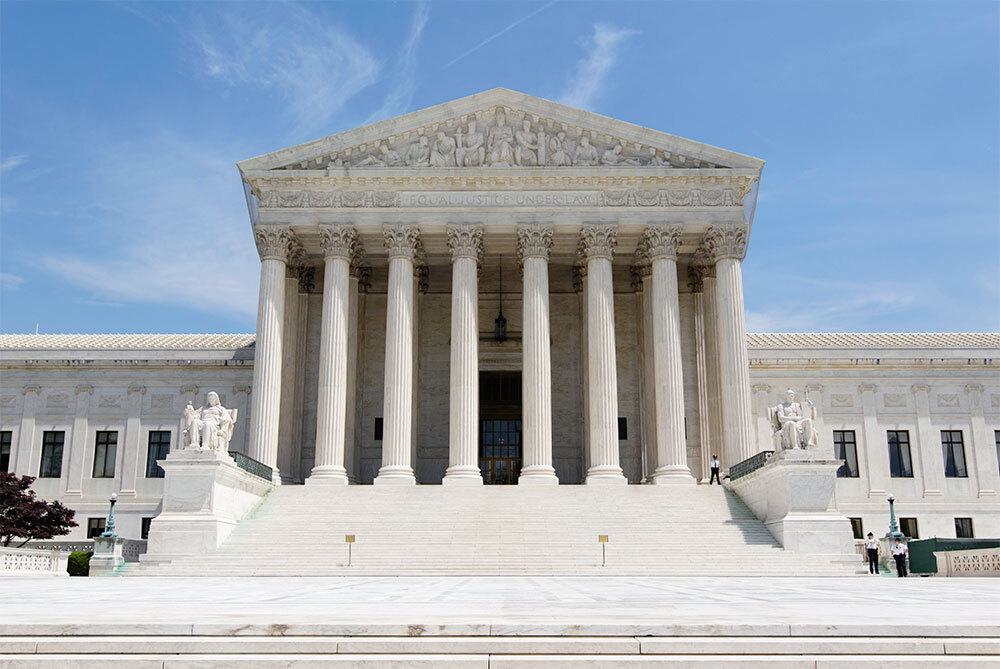The U.S. Supreme Court released another groundbreaking ruling on Monday – this time in favor of protecting religious liberty. U.S. Senator Tommy Tuberville (R-Alabama) released a statement applauding the ruling in Kennedy v. Bremerton, a case regarding whether a high school football coach praying at the 50-yard line is protected religious expression and free speech.
“Today’s Supreme Court ruling is a victory for religious liberty and the protections afforded to Americans under the First Amendment,” Tuberville said. “The right to freely exercise religion is a powerful – and important – part of the fabric of our nation and must be protected. We are blessed to live in a country that recognizes the ability to worship freely and I applaud the Supreme Court for upholding this fundamental right.”
In 1999, during his time as head coach at Auburn, then-Coach Tuberville hired the first full-time team Chaplain in the Southeastern Conference (SEC) and received some criticism from militant secularists over that decision.
Congressman Barry Moore (R-AL02) also applauded the ruling.
“The Supreme Court is on a roll! Thank you #SCOTUS for standing up for our First Amendment rights,” Moore said. “This is a major victory towards securing our Constitutional rights.”
Congressman Gary Palmer (R-AL06) said, “This is another huge victory for religious freedom.”
Congressman Mike Rogers (R-AL03) said, “A victory for free speech!”
“Freedom & religious liberty prevail!” said Alabama Gov. Kay Ivey (R) on social media. “This morning, SCOTUS rightfully took a stand for the free exercise of religion in America. I applaud this common-sense decision & am proud the tradition of public prayer at athletic events — if you so choose — will remain intact! #alpolitics.”
The Court ruled 6 to 3 in favor of Coach Joe Kennedy finding that the Bremerton School District violated both the First Amendment Free Speech and Free Exercise Clauses when they fired the coach for his 50-yard line prayers after football games.
According to an analysis by Liberty Counsel, the Court focused on two questions: (1) Whether a public school employee who says a brief, quiet prayer by himself while at school and visible to students is engaged in government speech that lacks any First Amendment protection; and (2) whether, assuming that such religious expression is private and protected by the free speech and free exercise clauses, the establishment clause nevertheless compels public schools to prohibit it.
The majority wrote, “It is clear that Kennedy’s speech was private rather than government speech.”
The majority opinion was written by Justice Neil Gorsuch.
“In this case, the District’s challenged policies were neither neutral nor generally applicable,” Gorsuch wrote. “By its own admission, the District sought to restrict Mr. Kennedy’s actions at least in part because of their religious character. As it put it in its September 17 letter, the District prohibited ‘any overt actions on Mr. Kennedy’s part, appearing to a reasonable observer to endorse even voluntary, student-initiated prayer.’ The District further explained that it could not allow an employee, while still on duty, to engage in religious conduct. Prohibiting a religious practice was thus the District’s unquestioned ‘object.’ The District candidly acknowledged as much below, conceding that its policies were ‘not neutral’ toward religion.
“Applying these lessons here, it seems clear to us that Mr. Kennedy has demonstrated that his speech was private speech, not government speech. When Mr. Kennedy uttered the three prayers that resulted in his suspension, he was not engaged in speech “ordinarily within the scope” of his duties as a coach. He did not speak pursuant to government policy. He was not seeking to convey a government-created message. He was not instructing players, discussing strategy, encouraging better on-field performance, or engaged in any other speech the District paid him to produce as a coach. Simply put: Mr. Kennedy’s prayers did not “ow[e their] existence” to Mr. Kennedy’s responsibilities as a public employee.”
The decision continued with further findings.
“We find it unlikely that Mr. Kennedy was fulfilling a responsibility imposed by his employment by praying during a period in which the District has acknowledged that its coaching staff was free to engage in all manner of private speech," wrote Gorsuch. "That Mr. Kennedy offered his prayers when students were engaged in other activities like singing the school fight song further suggests that those prayers were not delivered as an address to the team, but instead in his capacity as a private citizen. Nor is it dispositive that Mr. Kennedy’s prayers took place “within the office” environment—here, on the field of play. Garcetti, 547 U. S., at 421. Instead, what matters is whether Mr. Kennedy offered his prayers while acting within the scope of his duties as a coach. And taken together, both the substance of Mr. Kennedy’s speech and the circumstances surrounding it point to the conclusion that he did not.”
Justice Sotomayor wrote a dissenting opinion, in which Justices Breyer and Kagan joined.
Liberty Counsel’s Founder and Chairman Mat Staver said, “This is a great victory that affirms that every American has the right to engage in religious expression without fear of punishment. Banning a coach from silently praying after a game is illogical and unconstitutional. Today the Court finally buried the Lemon test that has caused so much damage to the First Amendment Establishment Clause. The Court recognized that the Free Speech, Free Exercise, and Establishment Clauses are on the same amendment and are not at war with each other.”
The Freedom From Religion Foundation denounced the ruling as “religious pandering “ and warned that it will have “far-reaching consequences.”
To connect with the author of this story, or to comment, email brandon.moseley@1819News.com.
Don’t miss out! Subscribe to our newsletter and get our top stories every weekday morning.










